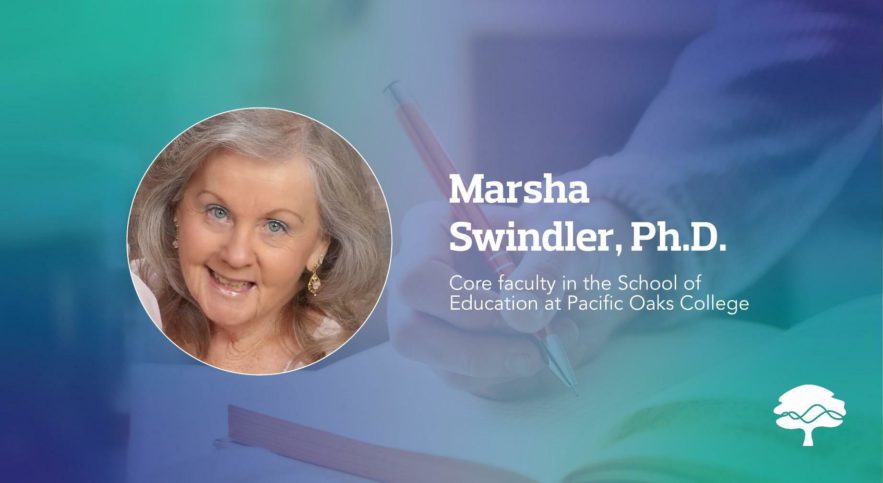Dr. Swindler describes the then-standard approach as lecture, take notes, test, assess, and repeat. “There was a fear of teaching students who may learn differently,” Dr. Swindler says. “The differentiation of instruction was as foreign a concept as learning a new language.”
The Path to Differentiation
Students need special education for a wide variety of reasons. Learning disabilities such as dyslexia and dyscalculia are common. So are autism spectrum disorder (ASD) and attention-deficit/hyperactivity disorder (ADHD). Physical disabilities and impairments affecting vision, hearing, or speech can also interfere with learning.
Under a principle called “least restrictive environment,” or LRE, federal law requires schools to treat special education students as much like other learners as possible. The goal is inclusion— creating schools that don’t stigmatize special education or treat some students as outsiders. But until recently, it meant that struggling learners were likely to be placed with teachers who had no idea how to help them.
Differentiated instruction is an approach that allows teachers to reach different learners in different ways. Accommodations are built into the lesson structure. A teacher might present vocabulary words in writing but also read them aloud and provide pictures or gestures that help students grasp the meaning. Classroom stations might offer sensory reassurance or tools and toys that help learners explore concepts physically. Lessons include time for the teacher to work directly with struggling learners.
Differentiated tests allow for accommodations as well. Some students may have extra testing time. Some may receive text in an audio format. Some may use methods such as collaborative testing or take-home exams.
The student-focused flexibility of differentiation offers a way around learning difficulties. Since these difficulties may influence behavior, differentiation can also help with classroom management. But, as Dr. Swindler discovered, it wasn’t a standard component of teacher training.
What she found alarming was not just the limitation of future teachers’ skills but its indirect impact. Teacher training has the potential to shape education for huge numbers of students—for better or for worse. The loss of a learning opportunity can have a lifelong effect on a student. With years of experience as a primary and secondary educator, resource teacher, and paraprofessional, Dr. Swindler knew firsthand the difference it could make for a teacher to respond to a student’s special needs.
She had found her passion “to awaken a better understanding of the community of learners in special education.” By training the teachers of the future, she could do just that.
Helping Students—and Everyone Else—Catch Up
Dr. Swindler’s realization anticipated major transformations in the world of education.
“What we teach using special education curriculum, culturally, social-emotionally, and behaviorally,” she says, “has always followed Universal Design for Instruction (UDI), which is making a current impact in all areas of education. The rest of education is catching on to the interconnectedness of the intellectual and emotional growth, individuality, and intrinsic value of each person.”
The change reflects a broadening understanding of disability and education in the world at large. “As we learn what makes a better world for the students with special needs, both inside and outside the classroom, we instill a passion for a better understanding of the community of learners and their families.”
“My vision in education,” she explains, “seeks to create an intellectual understanding of a deep and lasting change to how students in special education must be included in general education classrooms, recognizing that there is a paradigm shift for all educators to become agents of change.”
Choosing to Make a Difference
Now in her 10th year at Pacific Oaks, Dr. Swindler helps new teachers understand how to accommodate special needs students. “It is through the support of Pacific Oaks College that the future of neurodiversity continues to grow, thrive, and prosper,” Dr. Swindler says, citing the college’s core values of respect, diversity, social justice, and inclusion as pivotal. “I choose to make a difference, and Pacific Oaks College allows me to continue to forge a new path in special education.”
Dr. Swindler has developed teacher training programs such as the Course Buddy Connection. She has presented special education methodologies at numerous workshops around the world, helping teachers grow intellectually, emotionally, and personally in service of all learners.
Training teachers isn’t just about personal fulfillment. “We have a tremendous responsibility in life to be the catalyst that precipitates a change,” Dr. Swindler says. “We as educators are challenged to take care of the students and families in our school communities. … Teachers can be a beacon of light by welcoming change in support of all students at all levels of learning.”
To learn more about Pacific Oaks College, please fill out the form below.

